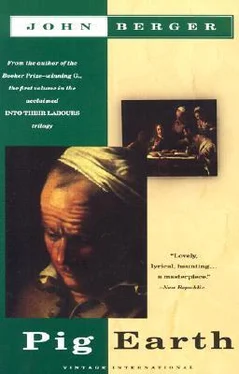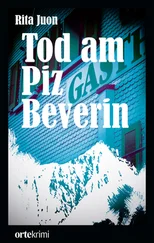Thus the peasant had to survive the permanent handicap of having a “surplus” taken from him; he had to survive, in the subsistence half of his economy, all the hazards of agriculture — bad seasons, storms, droughts, floods, pests, accidents, impoverished soil, animal and plant diseases, crop failures; and furthermore, at the base frontier, with the minimum of protection, he had to survive social, political and natural catastrophes — wars, plagues, brigands, fire, pillaging, etc.
The word survivor has two meanings. It denotes somebody who has survived an ordeal. And it also denotes a person who has continued to live when others disappeared or perished. It is in this second sense that I am using the word in relation to the peasantry. Peasants were those who remained working, as distinct from the many who died young, emigrated or became paupers. At certain periods those who survived were certainly a minority . Demographic statistics give some idea of the dimensions of the disasters. The population of France in 1320 was seventeen million. A little over a century later it was eight million. By 1550 it had climbed to twenty million. Forty years later it fell to eighteen million.
In 1789 the population was twenty-seven million, of whom twenty-two million were rural. The revolution and the scientific progress of the nineteenth century offered the peasant land and physical protection such as he had not known before; at the same time they exposed him to capital and the market economy; by 1848 the great peasant exodus to the cities had begun and by 1900 there were only eight million French peasants. The deserted village has probably almost always been — and certainly is again today — a feature of the countryside: it represents a site of no survivors.
A comparison with the proletariat in the early stages of the industrial revolution may clarify what I mean by a class of survivors. The working and living conditions of the early proletariat condemned millions to early death or disabling illness. Yet the class as a whole, its numbers, its capacity, its power, was growing. It was a class engaged in, and submitting to, a process of continual transformation and increase. It was not the victims of its ordeals who determined its essential class character, as in a class of survivors, but rather its demands and those who fought for them.
From the eighteenth century onwards populations all over the world mounted, at first slowly and later dramatically. Yet for the peasantry this general experience of a new security of life could not overlay its class memory of earlier centuries, because the new conditions, including those brought about by improved agricultural techniques, entailed new threats: the large-scale commercialisation and colonialisation of agriculture, the inadequacy of ever smaller plots of land to support entire families, hence large-scale emigration to the cities where the sons and daughters of peasants were absorbed into another class.
The nineteenth-century peasantry was still a class of survivors, with the difference that those who disappeared were no longer those who ran away or who died as a result of famine and disease, but those who were forced to abandon the village and become wage earners. One should add that under these new conditions a few peasants became rich, but in doing so they also ceased, within a generation or two, to be peasants.
To say that peasants are a class of survivors may seem to confirm what the cities with their habitual arrogance have always said about peasants — that they are backward, a relic of the past. Peasants themselves, however, do not share the view of time implicit in such a judgement.
Inexhaustibly committed to wresting a life from the earth, bound to the present of endless work, the peasant nevertheless sees life as an interlude. This is confirmed by his daily familiarity with the cycle of birth, life and death. Such a view may predispose him to religion, yet religion is not at the origin of his attitude and, anyway, the religion of peasants has never fully corresponded with the religion of rulers and priests.
The peasant sees life as an interlude because of the dual contrary movement through time of his thoughts and feelings which in turn derives from the dual nature of the peasant economy. His dream is to return to a life that is not handicapped. His determination is to hand on the means of survival (if possible made more secure, compared to what he inherited) to his children. His ideals are located in the past; his obligations are to the future, which he himself will not live to see. After his death he will not be transported into the future — his notion of immortality is different: he will return to the past.
These two movements, towards the past and the future, are not as contrary as they might first appear because basically the peasant has a cyclic view of time. The two movements are different ways of going round a circle. He accepts the sequence of centuries without making that sequence absolute. Those who have a unilinear view of time cannot come to terms with the idea of cyclic time: it creates a moral vertigo since all their morality is based on cause and effect. Those who have a cyclic view of time are easily able to accept the convention of historic time, which is simply the trace of the turning wheel.
The peasant imagines an unhandicapped life, a life in which he is not first forced to produce a surplus before feeding himself and his family, as a primal state of being which existed before the advent of injustice. Food is man’s first need. Peasants work on the land to produce food to feed themselves. Yet they are forced to feed others first, often at the price of going hungry themselves. They see the grain in the fields which they have worked and harvested — on their own land or on the landowner’s — being taken away to feed others, or to be sold for the profit of others. However much a bad harvest is considered an act of God, however much the master/landowner is considered a natural master, whatever ideological explanations are given, the basic fact is clear: they who can feed themselves are instead being forced to feed others. Such an injustice, the peasant reasons, cannot always have existed, so he assumes a just world at the beginning. At the beginning a primary state of justice towards the primary work of satisfying man’s primary need. All spontaneous peasant revolts have had the aim of resurrecting a just and egalitarian peasant society.
This dream is not the usual version of the dream of paradise. Paradise, as we now understand it, was surely the invention of a relatively leisured class. In the peasant’s dream, work is still necessary. Work is the condition for equality. Both the bourgeois and Marxist ideals of equality presume a world of plenty; they demand equal rights for all before a cornucopia, a cornucopia to be constructed by science and the advancement of knowledge. What the two understand by equal rights is of course very different. The peasant ideal of equality recognises a world of scarcity, and its promise is for mutual fraternal aid in struggling against this scarcity and a just sharing of what the work produces. Closely connected with the peasant’s recognition, as a survivor, of scarcity is his recognition of man’s relative ignorance. He may admire knowledge and the fruits of knowledge but he never supposes that the advance of knowledge reduces the extent of the unknown. This non-antagonistic relation between the unknown and knowing explains why some of his knowledge is accommodated in what, from the outside, is defined as superstition and magic. Nothing in his experience encourages him to believe in final causes, precisely because his experience is so wide. The unknown can only be eliminated within the limits of a laboratory experiment. Those limits seem to him to be naïve.
Читать дальше












